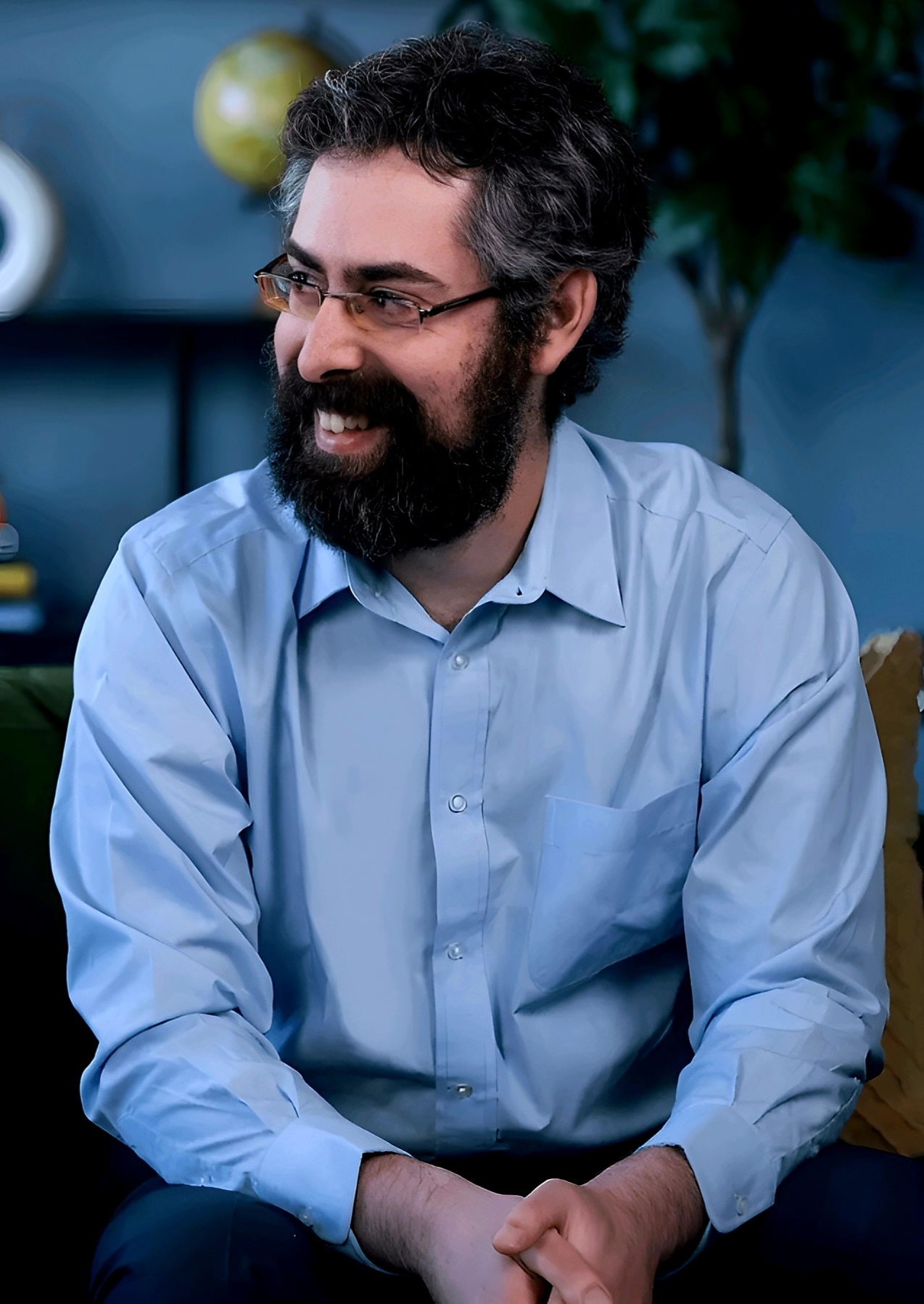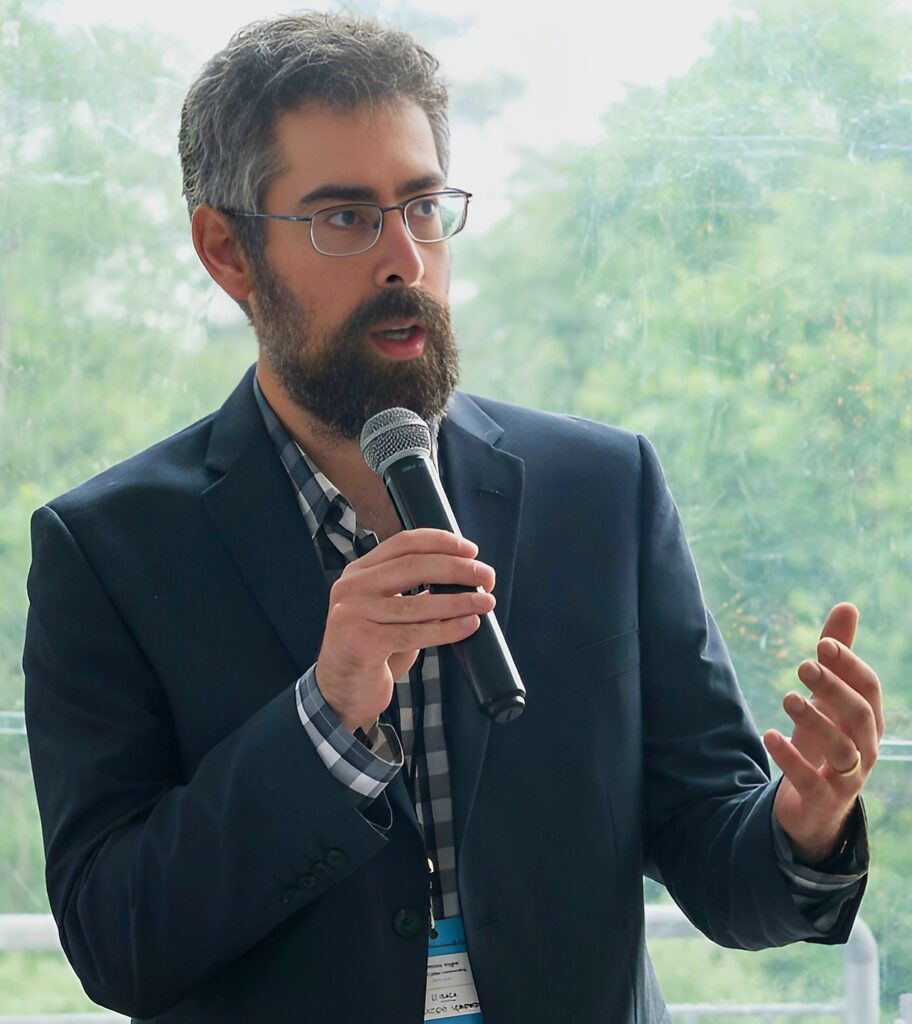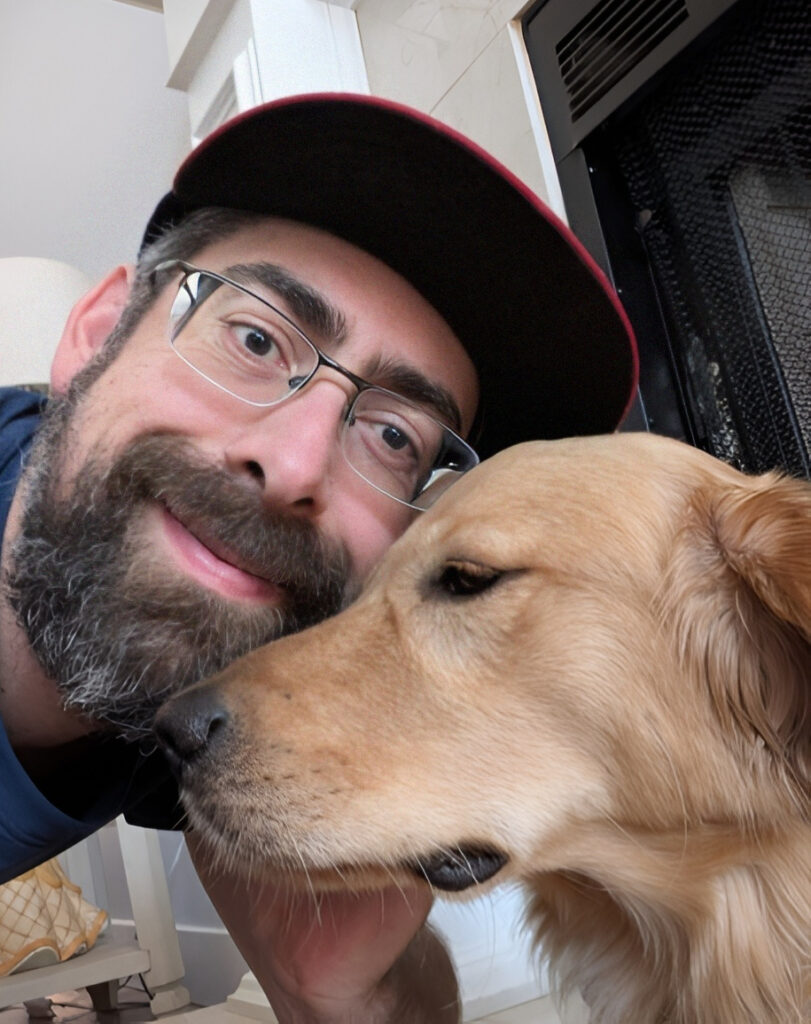Human At Work

A space for the heartbeat of leadership
The Light We Leave Behind:Dominic Vogel on Kindness, Leadership, and the Power of Being Human at Work
BY CAMMANEX EDITORIAL
Dominic Virgil didn’t learn leadership from a textbook. He learned it in the raw spaces life doesn’t prepare you for — the nights he sat at the edge of his mother’s hospital bed, the mornings he helped his father hold the family together when the world felt uncertain. Long before he knew what “emotional intelligence” meant, he was practicing it: holding space, reading the room, bringing calm where there was chaos. “My mom struggled with mental illness,” Dominic says, his voice steady but soft. “And from a very early age — maybe eight or nine — I had to learn empathy and compassion in ways most kids don’t.” What some might call hardship, he calls training for humanity. Those early lessons — in kindness, presence, and quiet leadership — became his compass. “I wouldn’t wish those experiences on anyone,” he reflects. “But they made me who I am. And I really like who I am.” That self-awareness, that acceptance, is rare. It’s also the kind of grounded confidence that radiates through his work today — in an industry that often forgets the human behind the firewall.

“Sometimes you have to fall apart to find out who you really are.”
Because Dominic works in cybersecurity. A field that runs on pressure, precision, and vigilance. Where stakes are high and burnout is common. But Dominic’s story isn’t about firewalls or code. It’s about the humans behind the screen — the ones protecting everyone else, often at the cost of their own wellbeing. “I used to be deeply technical,” he says. “Now, I focus on supporting senior cybersecurity leaders with the human skills — managing burnout, staying inspired, keeping the humanity in their leadership.” He smiles. “I guess you could say I protect the protectors.”
The Alchemy of Adversity
Dominic’s story is stitched with quiet resilience — the kind that doesn’t announce itself, but endures. His father was his first teacher in that language. “Even in the darkest days,” he recalls, “my dad never wavered. He showed me what resilience looks like — the power of staying, the power of not giving up on someone you love.” That steady presence shaped him — not just as a son, but as a leader, husband, and father. “It taught me that leadership isn’t loud. It’s the person who stays calm when everyone else is breaking. The one who holds the space.” And it’s a lesson he carried into the corporate world — until, one day, it all broke. “I burned out completely,” he admits. “I was in a toxic situation and didn’t even realize it until my body and mind shut down.” That breaking point became the beginning of something entirely new. “I often say it broke the pieces of me that needed to be broken so I could become the truest version of myself,” he says quietly. “Sometimes you have to fall apart to find out who you really are.” That reckoning became the soil for his reinvention — not just as a cybersecurity professional, but as a teacher of presence, humor, and light.
The Kindness Project
It started simply. A comment here, a word of encouragement there. “I was watching all this noise on LinkedIn,” he remembers. “So much toxicity, so much posturing. And I thought — maybe I could approach this differently. Maybe I could just… make people smile.” He laughs. “I became a dopamine dealer.” That impulse — to lift, to lighten, to connect — grew into what Dominic now calls The Kindness Project: a global ripple of humor, empathy, and human connection. Eight years later, it’s not just a hashtag. It’s a movement. Thousands of people across industries know him not for his cybersecurity credentials, but for the warmth he brings into digital spaces that can feel cold and transactional. His method? Radical authenticity. Humor as a bridge. Humanity as a metric. “I don’t follow traditional coaching frameworks,” he admits. “I coach with kindness. I help people laugh again. I remind them that they’re human first, leaders second.” There’s a story he loves to tell — about a client who came to him struggling to connect with a new team. “They were obsessed with outcomes,” he says. “And I told them — don’t be a leader of outcomes. Be a leader of people.” Weeks later, the client came back transformed. Their team wasn’t just performing better — they were feeling better. “They said, ‘It’s changed everything,’” Dominic recalls. “That’s what happens when you lead with humor, empathy, and authenticity. The results follow.”
Presence as Power
Dominic talks about presence the way some talk about faith — as both a practice and a power. “To me, power through presence means showing up as your truest self,” he explains. “It’s when your energy, your values, your heart all line up. People feel that. They trust that.” He laughs, remembering an image from his childhood. “You remember the Care Bears? How they’d project these beams of energy from their chest? That’s what presence feels like to me. When you’re authentic, your energy radiates. People can feel it before you even speak.” He pauses. “That’s the kind of power I want to help people cultivate — the kind that doesn’t dominate, but elevates.”
The Gift of Lifting Others
This past year has tested that philosophy in ways he didn’t expect. “It’s been my hardest financial year,” he says openly. “I’ve struggled. But the paradox is — I doubled down on giving.” When most would retreat, Dominic chose to expand. “I found that in uplifting others, I uplifted myself,” he says. “You remember your purpose when you help someone else remember theirs.” That’s the heart of his work — and his life. Dominic doesn’t talk about leadership as strategy. He talks about it as service. About the quiet dignity of kindness in a world that often rewards noise. About resilience as a shared act of love. “The risk isn’t in being too kind,” he says. “The real risk is betraying yourself to fit in.”

The Legacy of Light
When you ask Dominic what he wants to be remembered for, he doesn’t mention accolades, achievements, or followers. He talks about feeling. “I want people to say knowing me was like a hug for the soul,” he says. “That I was the nicest person they ever met. That when they needed to remember happiness, they thought of me.” He smiles. “And I hope one day, someone says to my kids, ‘Your dad was the kindest human I ever met. Every time I try to be happy, I think about your dad.’” That’s the legacy he’s building — not in lines of code, but in lines of connection. Because for Dominic, humanity isn’t the soft side of work.
It is the work.
The staying.
The laughing.
The lifting.
The light we leave behind.
